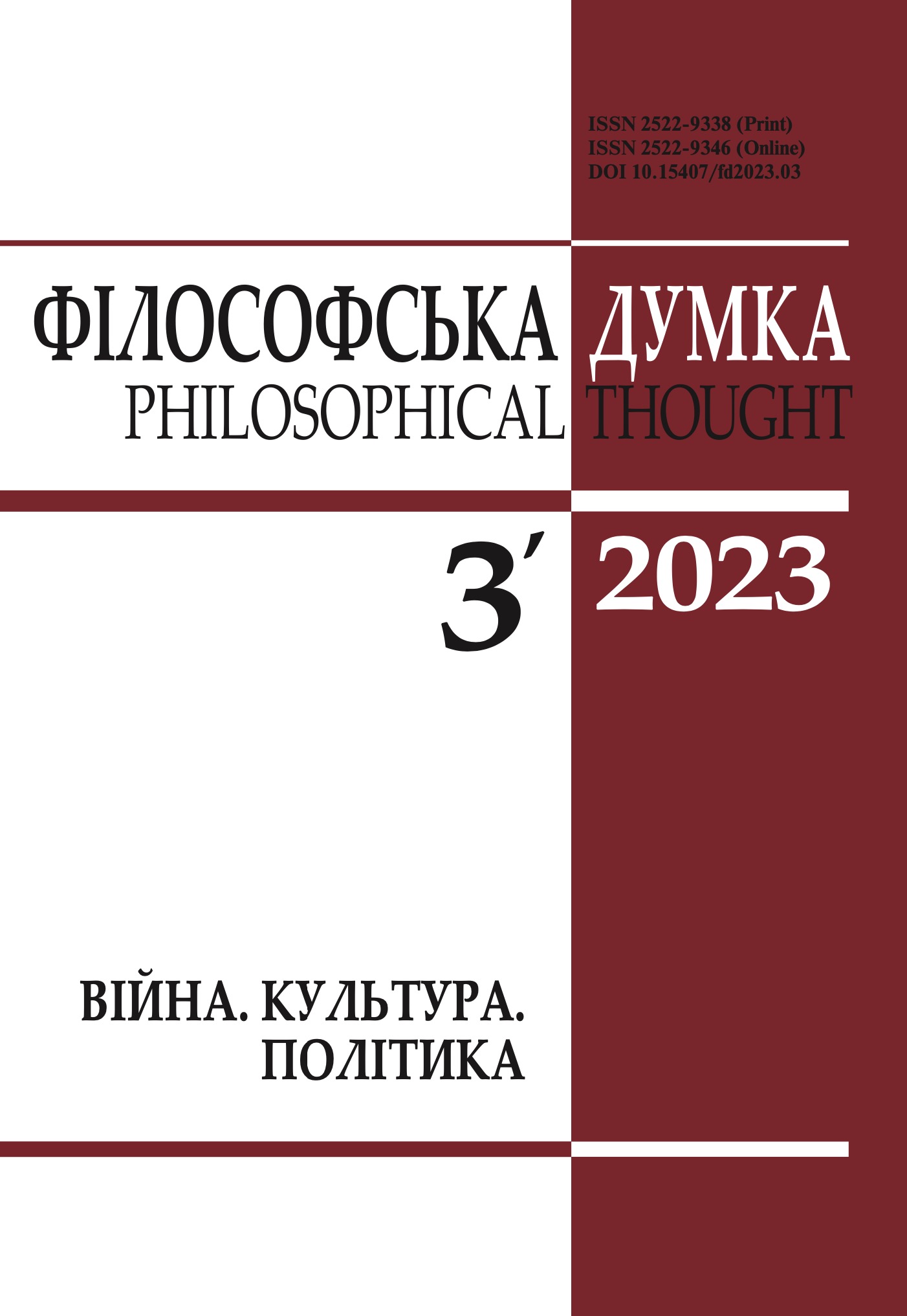War. Culture. Politics
Round Table Discussion of “Filosofska Dumka”
Abstract
The round table discussion in this issue of FD is aimed at clarifying the interpenetration of the spheres of politics and culture in the foundations of a contemporary war. Ukrainian philosophers, culture activists, religious scholars and public intellectuals discussed the issues of war, culture, and politics through the lens of the existential experience of Ukraine's resistance to Russia's full-scale military aggression. In accordance with the strategic untention of the round table, in the focus of discussion there was a wide range of issues, from the analysis of changes in the understanding of the very concept of culture to the clarification of those specific cultural factors, due to which the Moscow authorities and a large part of the Russian population are able to motivate and support the policy of a bloody war aimed at the destruction of another culture nation. The problem of religious and legal culture for the construction of public and interethnic peace was raised, as well as the observation of the spiritual and religious experience of manifestations of human courage based on the experience of human solidarity in the events of the war. The questions of why and how Russian culture, unlike European one, catalyzed a potential war strategy to reproduce "imperial knowledge" in the field of art and literary creativity were at the center of the round table presentations. The topic of the political formation of the "cult of war", which is the basis of Russian fascism based on loyalty to the history of the memory of the Second World War, was continued by reflections on the impact of the war on collective memory of Ukrainians. Finally, during the discussion, the complex problem of the social genesis of evil and the level of responsibility of Russian population for the crime of Russia's war against Ukraine was discussed. Two speeches devoted, respectively, to the topic of the peculiarities of the decolonization of Ukrainian culture as its liberation from imperial-Soviet ideological interpretations and, the second, to changes in the interpretation of our ownmost history in order to promote national unity, were expanded by the authors to the rang of articles also printed in this issue of FD.
Downloads
-
PDF (Українська)
Downloads: 591
Published
How to Cite
Issue
Section
License
Authors who publish with this journal agree to the following terms:
- Authors retain copyright and grant the journal right of first publication.
- Authors are able to enter into separate, additional contractual arrangements for the non-exclusive distribution of the journal's published version of the work (e.g., post it to an institutional repository or publish it in a book), with an acknowledgement of its initial publication in this journal.
- Authors are permitted and encouraged to post their work online (e.g., in institutional repositories or on their website) prior to and during the submission process, as it can lead to productive exchanges, as well as earlier and greater citation of published work (See The Effect of Open Access).


